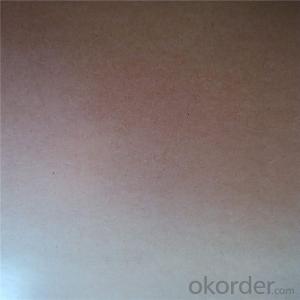When it comes to crafting, building, or decorating, the choice of material can make all the difference. One such material that has been gaining popularity in the world of DIY projects and professional woodworking is 1-16 plywood. This ultra-thin option offers a unique blend of lightweight properties, strength, and versatility that makes it a favorite among creators of all kinds. In this article, we’ll explore the ins and outs of 1-16 plywood, its uses, benefits, and how to work with it to bring your projects to life.
The Beauty of 1-16 Plywood
1-16 plywood, also known as ultra-thin plywood, is a type of engineered wood that is made from thin layers of wood veneer that are glued together. Each layer, or ‘ply’, is incredibly thin, typically ranging from 0.005 to 0.008 inches in thickness. The result is a material that is not only lightweight but also strong and flexible. It’s this unique combination of characteristics that has made 1-16 plywood a go-to choice for a variety of applications.
Why Choose 1-16 Plywood?
Choosing 1-16 plywood for your next project can be a game-changer. Here are some reasons why this material is worth considering:
– Lightweight: With its slim profile, 1-16 plywood is easy to handle and maneuver, making it perfect for projects where weight is a concern.
– Strength: Despite its thinness, 1-16 plywood maintains a surprising amount of strength, thanks to the cross-grain layers that resist splitting and cracking.
– Versatility: This material can be used for a wide range of applications, from furniture making to model building, and even in art installations.
– Aesthetics: The thin layers of wood can be arranged in various patterns, offering a unique visual appeal that can enhance the look of your project.
– Cost-Effective: 1-16 plywood is often more affordable than thicker plywood options, making it an attractive choice for those on a budget.
Applications of 1-16 Plywood
The uses of 1-16 plywood are as diverse as the imaginations of the people who work with it. Here are some popular applications:
– Furniture Making: Create elegant, lightweight furniture pieces that are easy to move and transport.
– Model Building: Use it for constructing architectural models, scale replicas, and other intricate models.
– Art Installations: The flexibility and thinness of 1-16 plywood make it ideal for creating dynamic, space-defying art pieces.
– Crafts and Hobbies: From jewelry boxes to picture frames, this material is perfect for a variety of crafts.
– Interior Design: Use it for creating unique wall coverings, decorative panels, or even room dividers.
Working with 1-16 Plywood
While 1-16 plywood is easy to work with, there are some tips and tricks to keep in mind to ensure your project turns out just right:
– Cutting: Use a sharp utility knife or a laser cutter for precision cuts. A laser cutter can provide exceptionally clean and accurate cuts.
– Drilling: Take care when drilling to avoid splitting the thin layers. Start with a small bit and gradually increase the size if needed.
– Finishing: Since 1-16 plywood is thin, it can be prone to warping if not finished properly. Use a light sanding and a suitable sealant or paint to protect the surface.
– Joining: Consider using wood glue or small brads for joining pieces together to avoid splitting the thin veneer layers.
The Environmental Impact
In addition to its practical benefits, 1-16 plywood also has a positive environmental impact. It is often made from sustainable sources and uses less wood overall compared to thicker plywood options. This makes it a more eco-friendly choice for those looking to reduce their environmental footprint.
The Future of 1-16 Plywood
As the demand for lightweight, sustainable materials grows, so does the popularity of 1-16 plywood. We can expect to see more innovative uses and applications for this versatile material in the coming years. From advancements in manufacturing techniques to new design possibilities, the future looks bright for 1-16 plywood.
Conclusion
1-16 plywood is more than just a material; it’s a canvas for creativity. Its unique properties make it an excellent choice for a wide range of projects, from functional furniture to artistic expressions. Whether you’re a professional woodworker or a DIY enthusiast, incorporating 1-16 plywood into your next project could be the key to unlocking a new level of creativity and innovation. So, why not give it a try and see where it takes you?
Embrace the ultra-thin option and let your imagination run wild with 1-16 plywood!

